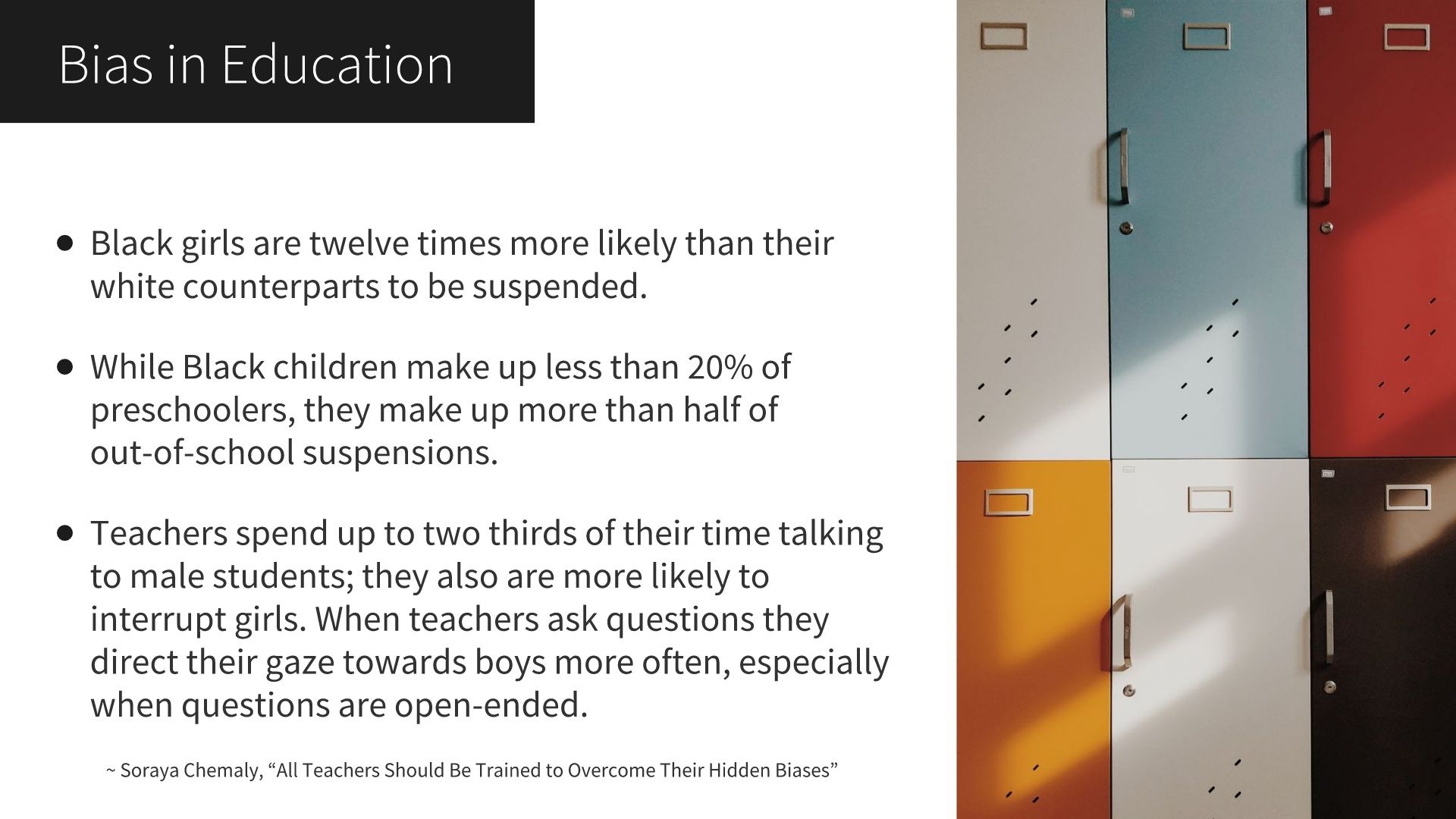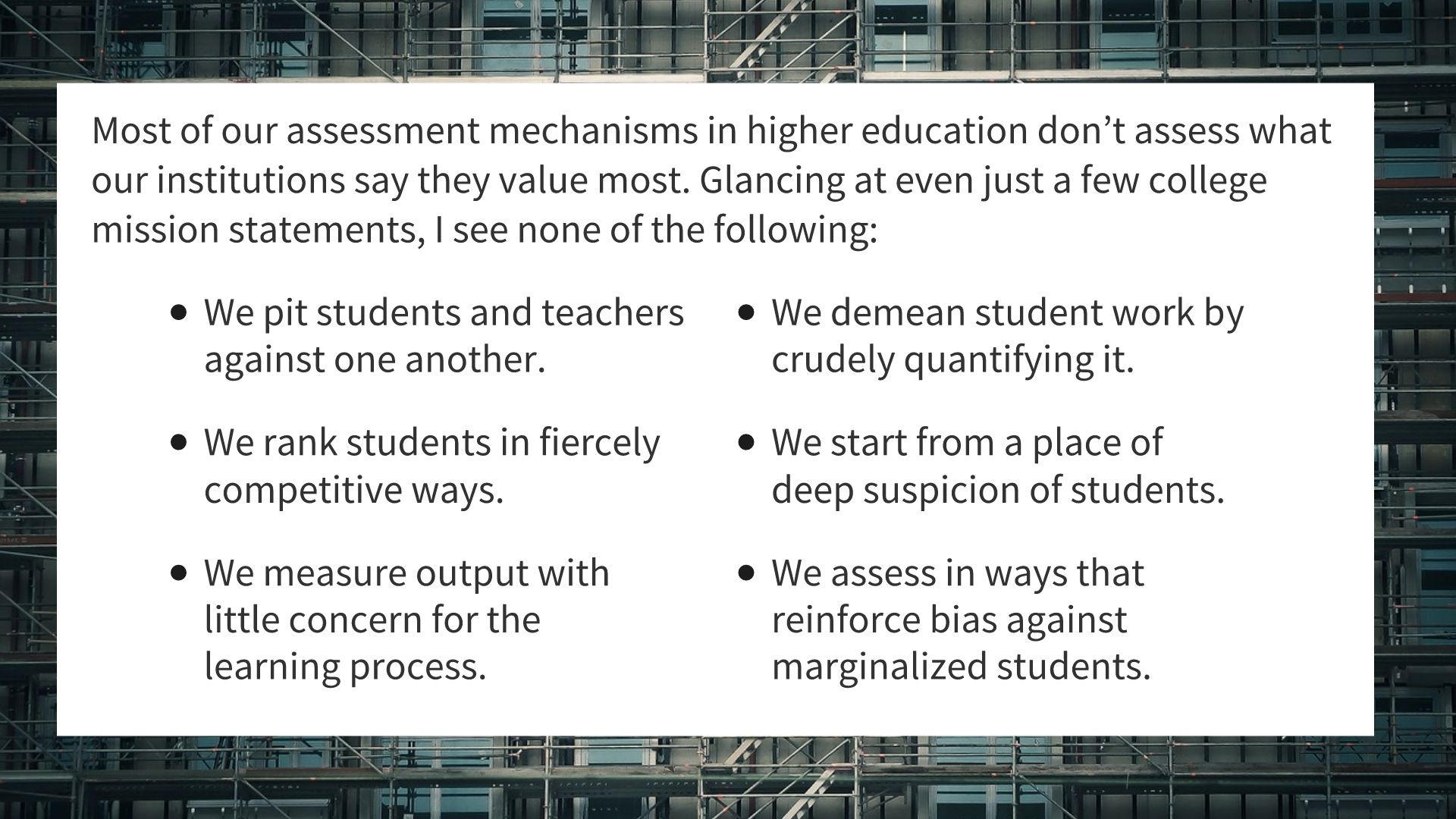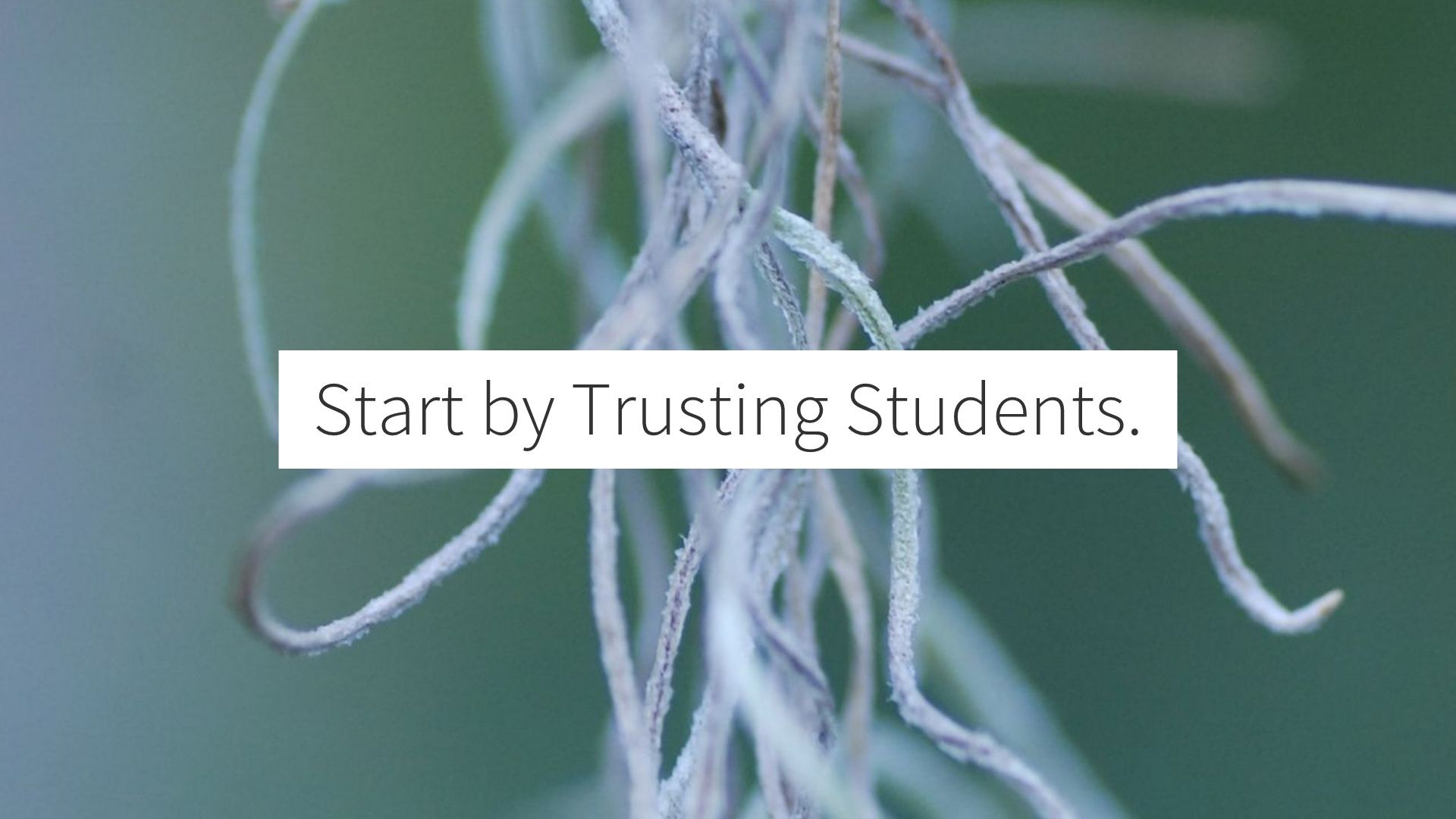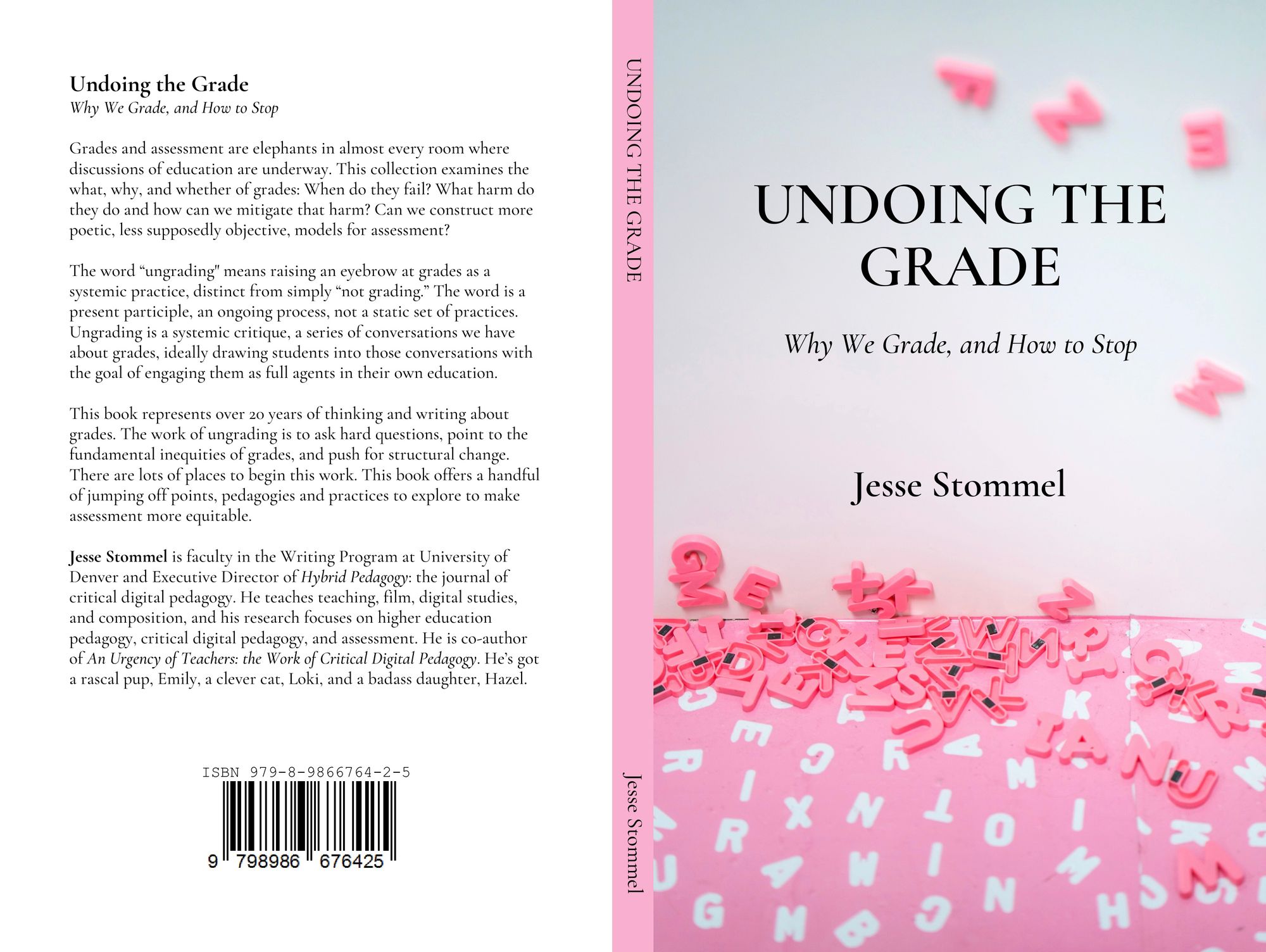Grades are Dehumanizing; Ungrading is No Simple Solution
This piece was revised and expanded for my new book, Undoing the Grade: Why We Grade, and How to Stop, available now in paperback and Kindle editions.
There is copious evidence that grades are not a good measure of learning, that they inhibit intrinsic motivation, and that they create a competitive environment between students and hostile relationships between students and teachers. We can't entirely remove grades quite yet, because they are hard-coded into so many of our educational systems, but teachers can (and should) raise our collective eyebrows at grades. And we should do this work together with students.
I haven’t put a grade on a single piece of student work in over 20 years. For the first ten years that I taught, I’d just say, “I don’t grade,” but that wasn't exactly true. While the students I work with self-evaluate, analyzing their own learning in dialogue with me, I still turn in grades at the end of a term – once bubbling in circles on a Scantron sheet, now filling out a series of increasingly (and needlessly) complicated online forms. From the start, that final moment of crude measurement felt out of sync with the rest of my teaching. It still does.
Why has so much of our educational system privileged that final moment of measurement, which reduces students to mere rows in a spreadsheet?
I’m a bit unsettled by the word “ungrading,” even as I've helped frame the term, because it feels like a Zeitgeist, a fleeting moment in time in which the thinking about grades is shifting, away from crude quantification and toward an equally simplified notion that grades can just as easily disappear into the ether from which they came. However, grades have a history, and I’d argue they’re a “technology.”
There is nothing ideologically neutral about grades, and there is nothing ideologically neutral about the idea that we can neat and tidily do away with grades. We can't simply take away grades without re-examining all of our pedagogical approaches, and this work looks different for each teacher, in each context, and with each group of students.
Most students were born into a system of crude quantification. I don’t say “born into” flippantly. I have a 4-year-old, and I’ve watched her growth quantified in discrete ways since the day she was born. She’s adopted, Black, and has two gay dads, so her “development” has always been a subject of peculiar discussion. She’s had some wonderful doctors, who see and engage her as the full (and rowdy) human that she is, but she is also regularly reduced to a data point, plotted upon a chart pre-determined before she came into the world. This has little to do with the full and lovely human being my daughter actually is in the world.

In a Time magazine article, “All Teachers Should Be Trained to Overcome Their Hidden Biases,” Soraya Chemaly collects and reflects upon data about how girls (and girls of color, in particular) encounter their education. In that piece, she cites a study showing black girls are twelve times more likely than their white counterparts to be suspended. While Black children make up less than 20% of preschoolers, they make up more than half of out-of-school suspensions. This is the world “ungrading” lives within, and it’s not a world where easy answers, or universalized best practices, are useful — or possible. A student in the class we’re “ungrading” might be the very same student who was suspended from preschool because she was a girl of color. Every bit of who are students have been, and the material circumstances they face, influences how they do (and can) engage. This is why I’ve written with Sara Goldrick-Rab that we need to “teach the students we have, not the students we wish we had.”

Most of our assessment mechanisms in higher education don’t assess what our institutions say they value most. Glancing at even just a few college and university mission statements, I see none of the following:
- We pit students and teachers against one another
- We rank students in fiercely competitive ways.
- We measure output with little concern for the learning process.
- We demean student work by crudely quantifying it.
- We start from a place of deep suspicion of students.
- We assess in ways that reinforce bias against marginalized students.
And, yet, these are what far too many of our systems and technologies appear to valorize.
I’ve written previously about the ways our technologies have attempted to “manage” the complexity of grades (and assessment). So much of edtech — learning management systems, remote proctoring, plagiarism detection software — does little more than surveil students, reducing them to codified bits, readable by an algorithm, or able to be parsed at a glance in a column of 75 other students. So few of these digital tools seem to deeply understand the work of teaching, which is necessarily about humans working together with other humans. Spreadsheets do little to help this work; they’re a distraction at best, an abuse at worst.
When our work moves online, as it has done for so many of our institutions over the last year, inequities and biases are exacerbated. We dehumanize students when we put them into spreadsheet rows or behind several clicks inside of a learning management system. The relationship between students and teachers suffers when our systems and policies reinforce hierarchies and encode biases.
Grades are anathema to the presumption of the humanity of students, support for their basic needs, and engaging them as full participants in their own education. Invigilated exams won’t ensure integrity. Plagiarism detection tech won’t unseat online paper mills. Incessant surveillance won’t help us listen better for the voices of students asking for help. All of our efforts would be better served by three simple words, “I trust you.”

This piece first appeared in Times Higher Education. For more on ungrading, I've collected much of my open-access writing on the subject in this Twitter thread.


